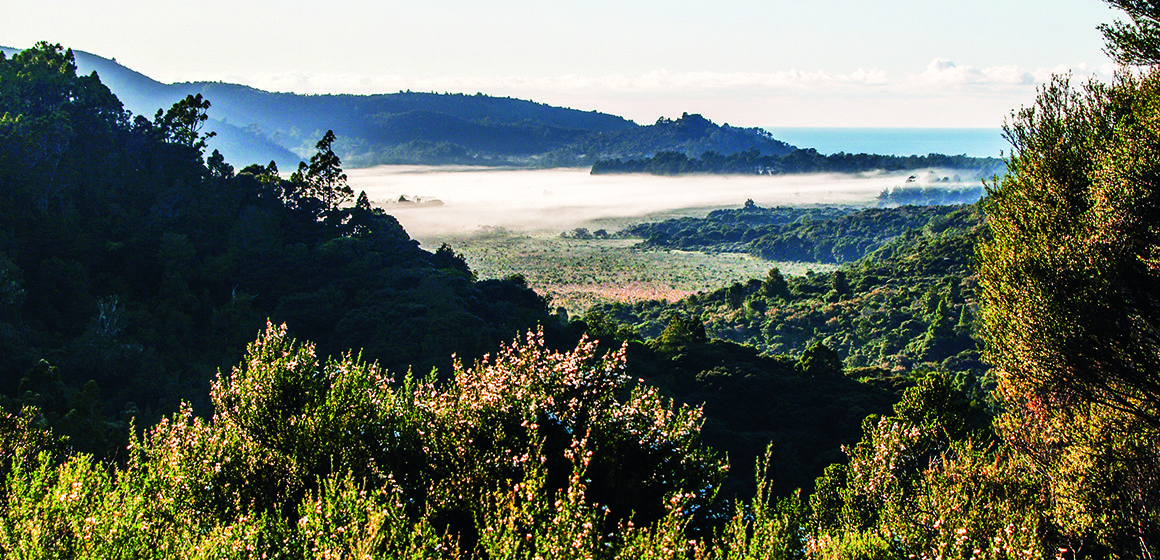

Someone said it was Wednesday today – they could be right. Aboard our 12m kauri keeler in an isolated Aotea Great Barrier Island bay, keeping track of the days has always seemed an urban oddity, along with commuting to work and flat whites at the local café on Saturday mornings. Story by Lindsay Wright.
An aide memoir is the mail which comes on Monday, Wednesday and Friday, delivered with a cheery chat if you happen to be in the vicinity of the mailbox when the postie calls. I suppose we could carve notches on a stick, like prisoners on a cell wall, but most of the sticks on board are carefully crafted teak and joined to others, so we’re stuck with keeping a diary.
But we listen to the radio a lot and noted that the country was going into lockdown at midnight on 25 March. So what, we thought – we’d beaten ‘em to it by eight years or so, the length of time our yacht, Southern Cross, has been in the bay.
But we did notice, over the first few days, an influx of boats from Auckland. Some came laden with provisions to tide over an extended stay at the family bach. Others were stocked with beer and wine, kids and kayaks – just like any other holiday.
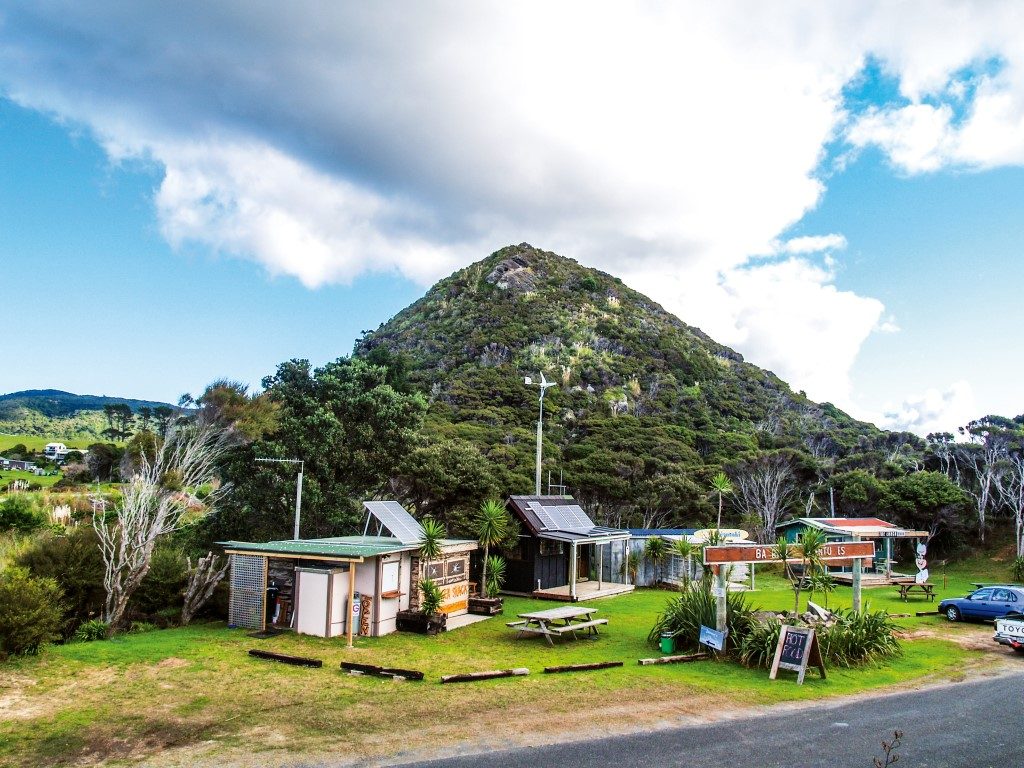
Great Barrier has ample infrastructure to cater for the 900 permanent residents. We grow most of our own veges and generate our own power but it’s quite a finely-tuned supply line. Aotea Health, our medical centre, doesn’t have the staff or facilities to cope with an influx of mortally ill people and we have an ageing population who would be especially vulnerable to flu bugs brought from town.
The coronavirus lockdown came as half a double whammy. Water supplies were low after a long dry summer and hoses had already been turned off at Tryphena, Port Fitzroy and Whangaparapara wharves.
Rumours soon began to abound: of the boat people in supposed isolation who had a party at Smokehouse Bay and rafted up for several days, and the family who walked into the Port Fitzroy Store to buy ice creams – just like any other holiday.
A superyacht aroused local ire by having 14 pallets of food and wine delivered on the weekly freight ferry, causing residents’ supplies to be left behind to make room. “I just hope it doesn’t put the locals off boaties for good,” a police officer told me. “That’d be the real shame.”
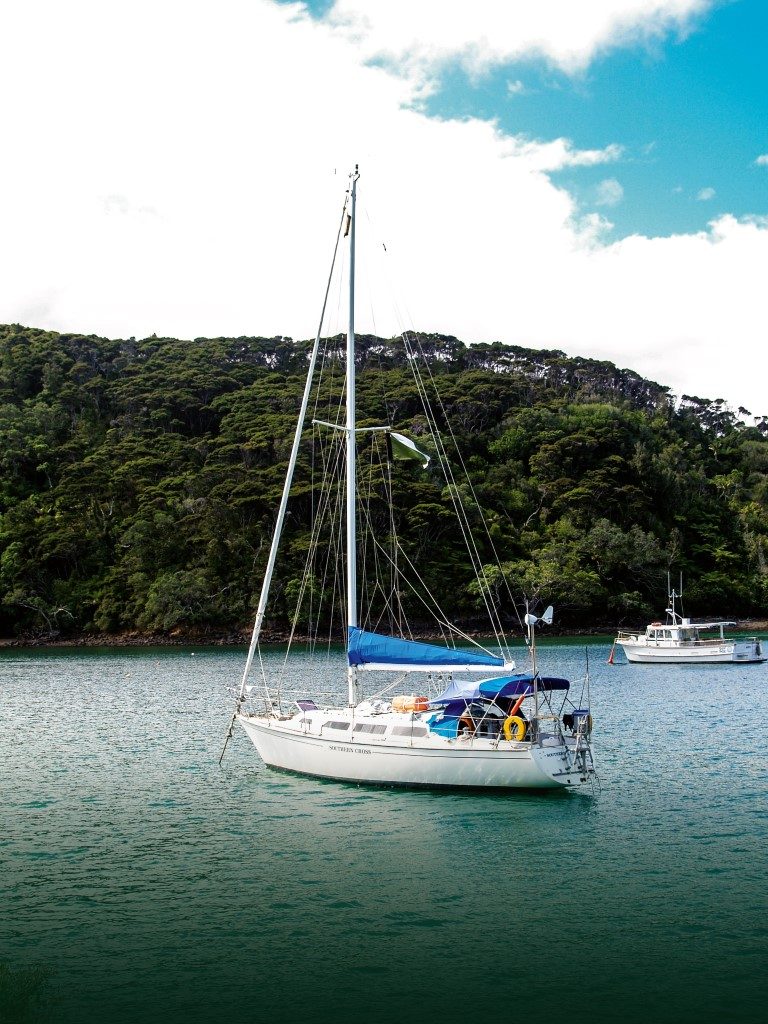
The police counted over 100 boats, most of them refugees from the city, unconcernedly steaming round Port Fitzroy like it was just another day on the Barrier. The locals were riled and a police helicopter was soon circling the island taking note of which boats were anchored and where. They were soon followed by the customs vessel Hawk, crewed by police.
The ominous grey patrol boat towered over our yacht while the police sergeant quizzed us about what stores/fuel/water we had aboard and how long we’d lived there. I couldn’t remember our Call Sign (Great Barrier Marine Radio uses boat names) but soon found it and then stood back to admire the Hawk skipper’s boat-handling skills.
“Huh – lots of horsepower, two big props with a good distance between them,” I thought grumpily. “I wonder how he’d go on an underpowered yacht with a prop that wouldn’t stir paint.” But he knew his business.
When they found out that we owned the mooring the policeman said “It’s okay – they’re local liveaboards…” and we felt privileged by the official acknowledgement that we belonged.
Like most households here, we grow our own veges and generate our own electricity. The island ethos is all about self-sufficiency. A few years ago when islanders were canvassed to see if they wanted mains power, 98% voted against it.
Lockdown, for us, was pretty easy. We’re already selfsufficient and have guaranteed incomes. We do miss the social life – Friday night happy hours at Great Barrier Lodge, dinner parties and barbecues.
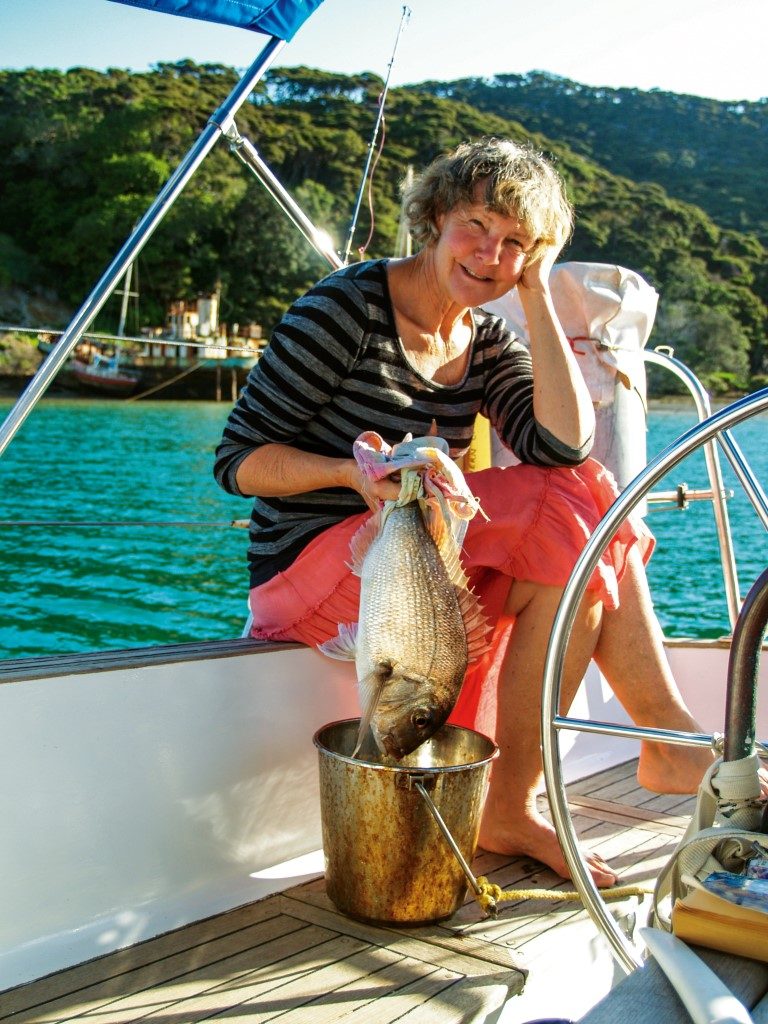
Town, for us, is Claris – 13km away over a road which is only 40% sealed. It has the police station, garage, Auckland Council service centre, airfield, police station, tyre store and post agent. We haven’t been there since lockdown. Our stores are delivered from the Stonewall Store in Tryphena, half an island away, by rural mail.
Home is 12m LOA from the splash zone at the back to the one off the bows. And she’s built from top quality kauri by people with pride in their work – to survive in the worst weather conditions she’ll likely ever come across.
But she’s also designed to slide through the water, chasing the horizon in a search for adventure and change. Our outlook ranges beyond our isolated bay – bottle-nosed dolphins, stingrays and orca inhabit the back yard and we notice weather changes that land people are blithely unaware of. Schools of bait fish sizzle on the surface like they’re already in a frying pan, bombarded by breakfasting birds.
We sometimes scoff at the people who live in square, clumsy clusters of houses – boxes built quickly for profit and to comply with council regulations. They all look the same to us. I often wonder how far house dwellers have to walk to do their household chores on any given day. There’s nothing much we can’t do here within a pace or two.
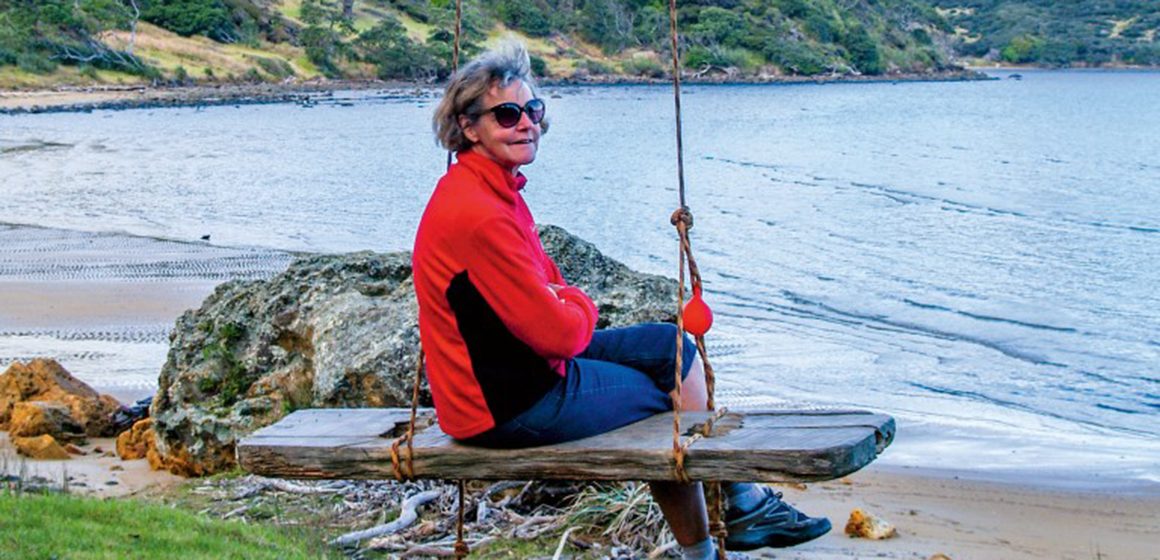
Weather forecasts and the barometer are scrutinised for any changes. We’re protected from the east, north and west but 25+ knots of SW means we may be in for a lumpy night. NW’ers can hit with a katabatic ferocity, barrelling down the gullies to slam the boat with almost vertical gusts of 50 knots.
If we have to be locked down, I can’t think of a better place to do it. The boat maintenance schedule is almost up to date, paint and wiring have been sorted and Kay had the foresight to lay in a lot of books before the library closed.
Mainland people talk about how the people they meet out walking are friendly and cheerful – Aotea Great Barrier is always like that.




